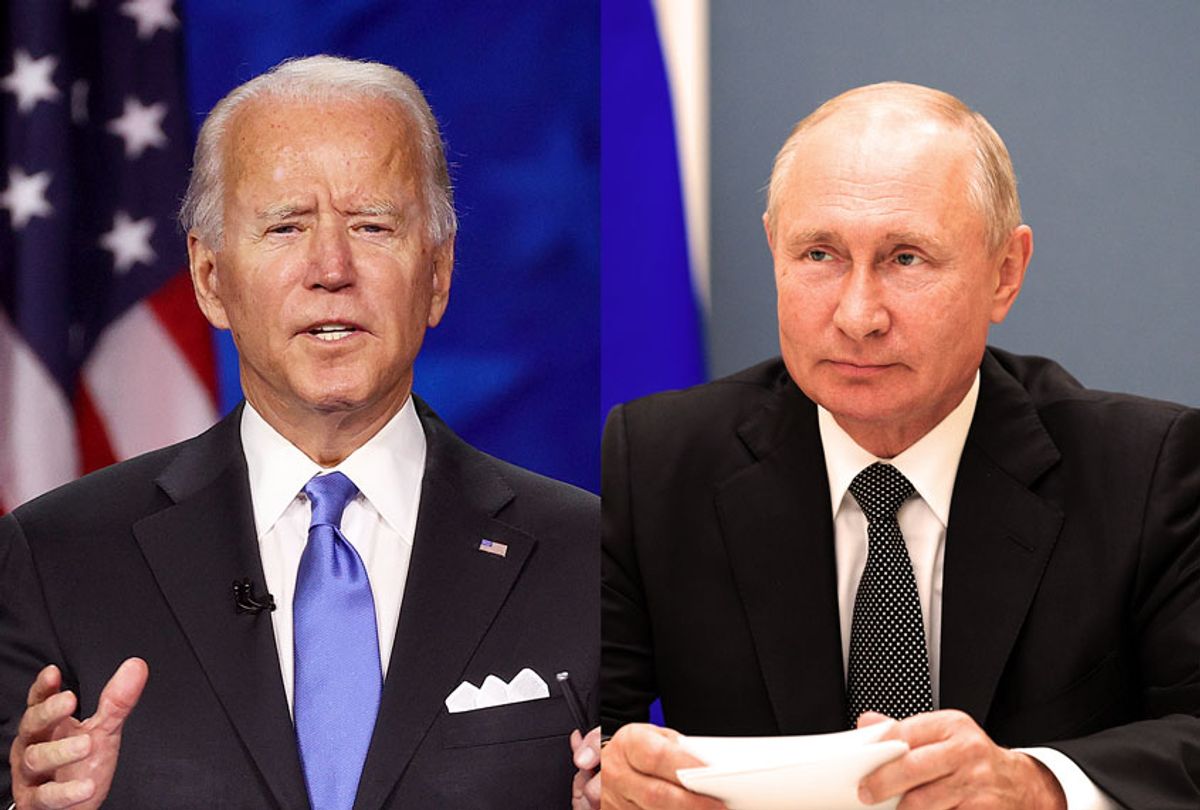Ever since Russia's anti-Western turn of 2005, governmental and non-governmental analysts across the globe have been busy discussing and predicting Moscow's next offensive action.
Yet, in most cases, while the world's politicians, experts, researchers, journalists et al. arrived with more or less adequate assessments and reactions, the Russian planners had already long achieved their aims.
The West talks, Russia acts
Such was the case with Russia's invasion of Georgia's South Ossetia and Abkhazia in 2008 or the (in)famous "little green men" in Ukraine's Crimea in 2014.
Or the hackers inside Germany's Bundestag in 2015, and the bombers over Syria's Aleppo in 2015-2016.
And the cyber-warriors in the U.S. elections of 2016 — or the despicable "chemical" assassins at England's Salisbury in 2018.
Russia's Biden calculus
One must reckon that the moment when the Kremlin becomes persuaded that Joe Biden will become the next U.S. president must be imminent.
At that moment, Russia may go for the jugular. Triggering civil conflicts in the United States — not merely election manipulation — could become the main aim of Moscow's interference into U.S. domestic affairs.
Meanwhile, many U.S. observers — whether in national politics, public administration or social science — may be preparing to fight the last war.
While Russian election interference and other influence operations are pretty much on everybody's mind across the United States, this realization by itself falls short.
Ukraine's bitter lesson
As Ukraine has bitterly learned in 2014, the Kremlin only plays soft ball in other countries as long as it believes it has some chance to win.
The Ukrainian experience over the past six years suggests a truly grim scenario. At some point during the Euromaidan Revolution, in either January or February 2014, Putin understood that he may be losing his grip on Ukraine.
That became evident when it became obvious that Moscow's man in Kyiv at the time, then still-President of Ukraine Viktor Yanukovych (though very much assisted by Paul Manafort), was on the verge of being kicked out by the Ukrainian people.
As a result, Russia's President drastically changed track already before the event.
When Ukraine's pro-Russian President was ousted by the Ukrainian parliament on February 22nd 2014, the Kremlin had already switched from merely political warfare against Ukraine to preparing a real war — something then largely unimaginable for most observers.
What's Russia's plan in the U.S.?
Something similar may be in the offing in Moscow's approach to the United States today too. To be sure, Russian troops will hardly land on U.S. shores.
That is neither realistic nor — and this is crucial — necessary. The possibility of fomenting violent civil conflict in the United States today is quite enough.
Such a scenario is already being discussed by serious analysts. The enormous political polarization and emotional spikes within American society make this plausible.
Judo tactics and dealing with the U.S.
As in Putin's favorite sport of Judo (in which he holds a Black Belt), a brief moment of disbalance on the part of the enemy can be used productively. It may even be sufficient to cause his fall.
While the United States may, by itself, not descend into civil war after the elections, an opportunity to push the United States in this direction will not be missed by the ever-industrious hybrid warfare specialists in Moscow.
Why Moscow dislikes Biden even more than Clinton
Moscow detested Hillary Clinton as a U.S. presidential candidate in 2016. The prospect of her presidency was enough to cause Russia to hack the Democratic Party's servers and launch a vicious ad campaign against Clinton.
Today, a U.S. President from the Democratic Party is an even more threatening prospect for the Kremlin.
A key reason is that under President Obama, Joe Biden was responsible for the United States' policy towards Ukraine, a country he knows and likes well. This makes a Biden presidency an extremely undesirable scenario for Moscow.
Conclusion
If Vladimir Putin concludes that he cannot prevent Joe Biden's election, the Kremlin may decide to do the utmost to fundamentally undermine American society — as well as the United States' standing as a relevant international actor.
In such a case, as Ukraine painfully learned in 2014, Moscow's ruthlessness and resourcefulness should not be underestimated.
This article is republished from The Globalist: On a daily basis, we rethink globalization and how the world really hangs together. Thought-provoking cross-country comparisons and insights from contributors from all continents. Exploring what unites and what divides us in politics and culture. Follow us on Facebook and Twitter. And sign up for our highlights email here.

Shares